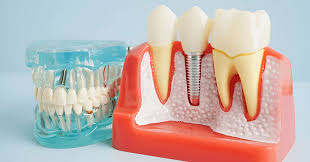
Dental implant surgery is a remarkable solution for replacing missing teeth, offering a durable and natural-looking alternative. However, many people considering this procedure wonder about the recovery time involved and what to expect during the healing process. Understanding the recovery timeline and care required can alleviate anxiety and support a successful outcome.
Initial Recovery: The First Week
The first seven days following dental implant surgery are crucial for establishing proper healing. Most patients experience the most discomfort and swelling during the first 24 to 72 hours. Common symptoms include mild bleeding, facial swelling, and pain as the local anesthesia wears off. Ití»s advised to apply cold compresses on the face intermittently during the first 48 hours to reduce swelling and manage discomfort effectively. Medications, including prescribed painkillers or over-the-counter options like ibuprofen, help keep pain under control.
During these early days, it is important to avoid disturbing the surgical site. Activities such as rinsing vigorously, spitting, or touching the area should be minimized to protect blood clot formation, which is essential for healing. Patients are encouraged to rest and keep their head elevated to help reduce swelling.
Diet during the first week should consist of soft, cold foods such as yogurt, smoothies, mashed potatoes, and broths. Avoiding hard, crunchy, spicy, or hot foods helps prevent irritation to the surgical site. Additionally, using straws should be avoided as suction can disrupt healing.
By the end of the first week, swelling and pain typically start to subside. Most patients are able to return to work within one to three days post-surgery, especially if their work is not physically strenuous.
Intermediate Healing: Weeks 2 to 8
After the initial recovery phase, soft tissue healing continues over the ensuing weeks. During this period, the gums gradually close around the implant site, and any residual swelling or discomfort usually dissipates. Patients should maintain gentle oral hygiene practices by brushing carefully around the implant area and using any prescribed mouth rinses to prevent infection.
While the site may feel tender, most normal daily activities and eating habits can resume with caution during this time. It is still advised to avoid excessive chewing pressure or very hard foods directly on the implant side to allow for stable healing.
Patients undergoing a bone graft or multiple implant placements may experience slightly longer intermediate healing phases due to the more extensive nature of their procedures.
Osseointegration: Months 3 to 6
The most crucial phase of recovery occurs over three to six months after surgery, known as osseointegration. During this time, the dental implant fuses with the jawbone to create a strong and stable foundation for the final crown or prosthesis. This biological bonding is essential for the long-term success of the implant.
Patients may feel fully healed externally while osseointegration progresses beneath the surface. It is important to follow up regularly with the dental specialist to monitor progress and avoid complications.
Once osseointegration is complete, the abutment and final restoration can be placed, allowing the dental implant to function like a natural tooth. Most patients report the implant feels completely normal, with the ability to chew, speak, and smile confidently.
Factors Influencing Recovery Time
Several factors can impact individual recovery timelines from dental implant surgery:
Location of Implant: Implants placed in the lower jaw tend to heal faster than those in the upper jaw due to bone density differences. If you're looking for affordable dental implant treatment in Chandkheda Ahmedabad, look no further than Dantbatrisa. We offer high-quality dental implants at competitive prices, ensuring you receive the best care without breaking the bank. Our team is dedicated to providing you with a comfortable, lasting solution that restores both function and aesthetics to your smile.
Number of Implants: Receiving multiple implants does not necessarily prolong recovery but may increase initial discomfort.
Need for Bone Grafting: Patients who require bone grafting procedures will experience longer healing times due to the added complexity.
Overall Health and Habits: Conditions such as smoking, diabetes, or compromised immune systems can slow down the healing process.
Gender: Some studies suggest women may experience a slightly delayed recovery compared to men.
Oral Hygiene: Maintaining good dental care after surgery is critical to prevent infection and ensure smooth recovery.
What to Expect Long Term
While initial recovery from dental implant surgery typically completes within two weeks with manageable discomfort, the entire healing and integration process takes several months. After appropriate healing, most patients resume normal eating habits without restrictions and report that implants feel and function just like natural teeth.
Long-term success rates for dental implants are high, around 95%, when proper care and follow-up visits are maintained. Regular dental check-ups and stringent oral hygiene practices are key to preserving implant health and function over many years.
Tips for a Smooth Recovery
Follow all post-operative care instructions provided by your dental surgeon.
Avoid smoking and alcohol consumption as they can impede healing.
Maintain a soft-food diet initially, gradually reintroducing more regular foods as comfort allows.
Use cold compresses to reduce swelling and follow medication guidelines.
Attend all scheduled follow-up appointments for monitoring and adjustments.
Keep the surgical area clean with gentle brushing and mouth rinses.
Conclusion
Recovery from dental implant surgery is a multi-stage process that spans from days to several months. Initial healing, which includes managing pain, swelling, and soft tissue recovery, generally completes within the first week to two weeks. The critical phase of osseointegration, where the implant bonds with the jawbone, takes an additional three to six months. Individual recovery times vary depending on factors like implant location, the necessity of bone grafting, health status, and adherence to post-surgery care.
With careful management and good dental hygiene, dental implants offer a highly effective, stable, and natural-feeling tooth replacement option that can last a lifetime. Understanding the recovery timeline empowers patients to set realistic expectations and take an active role in their healing journey.









